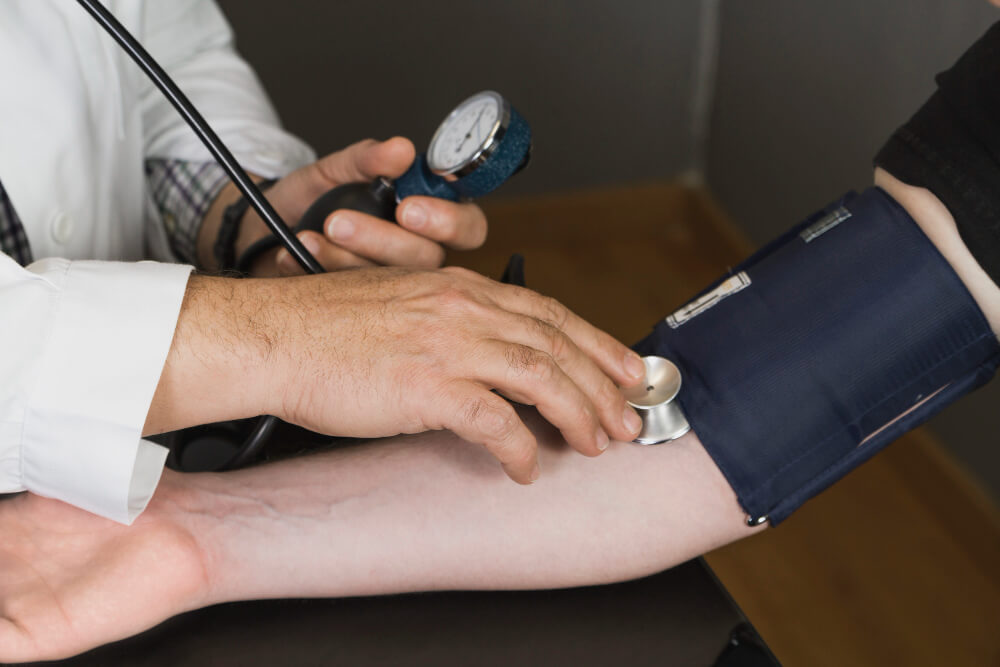Blood Pressure Management: A Crucial Step in Stroke Prevention
High blood pressure, also known as hypertension, is a common condition that affects millions of people worldwide. It is a major risk factor for stroke, a serious condition that can lead to disability or even death. By effectively managing your blood pressure, you can significantly reduce your risk of stroke and improve your overall health.

Understanding High Blood Pressure
High blood pressure occurs when the force of blood against your artery walls is consistently too high. This can damage your blood vessels and increase your risk of heart disease, stroke, and other health problems.
Signs and Symptoms While high blood pressure often has no noticeable symptoms, some people may experience:
- Headaches
- Dizziness
- Fatigue
- Shortness of breath
- Nosebleeds
- Vision problems
Risk Factors Several factors can increase your risk of high blood pressure, including:
- Age
- Family history
- Obesity
- Smoking
- High sodium intake
- Lack of physical activity
- Stress
The Dangers of High Blood Pressure
High blood pressure can damage your blood vessels, leading to a variety of serious health problems, including:
- Stroke When a blood vessel in the brain bursts or becomes blocked, leading to brain damage.
- Heart Attack When a blood vessel in the heart becomes blocked, preventing blood flow to the heart muscle.
- Heart Failure A condition in which the heart is unable to pump enough blood to meet the body’s needs.
- Kidney Disease Damage to the kidneys, which can lead to kidney failure.
The Importance of Blood Pressure Management
Effective blood pressure management is essential for preventing stroke and other serious health complications. By taking steps to lower your blood pressure, you can significantly reduce your risk of these conditions.
Lifestyle Changes Making healthy lifestyle changes can help lower your blood pressure, including:
- Eating a healthy diet
- Regular exercise
- Maintaining a healthy weight
- Limiting alcohol consumption
- Quitting smoking
Medication In some cases, medication may be necessary to help manage high blood pressure.
Monitoring Your Blood Pressure

Regularly monitoring your blood pressure is crucial for effective management. You can monitor your blood pressure at home using a blood pressure monitor or have it checked at your doctor’s office.
- Home Blood Pressure Monitoring Using a home blood pressure monitor can help you track your blood pressure over time and identify any trends.
- Doctor’s Office Visits Regular visits to your doctor for blood pressure checks are essential for monitoring your condition and making adjustments to your treatment plan as needed.
Seeking Medical Attention
If you have concerns about your blood pressure, it is important to see your doctor for a thorough evaluation. They can diagnose high blood pressure and recommend appropriate treatment.
- Symptoms of High Blood Pressure While high blood pressure often has no symptoms, if you experience any of the symptoms listed above, it is important to see your doctor.
- Regular Check-ups Even if you do not have any symptoms, it is important to see your doctor for regular check-ups to monitor your blood pressure.
Treatment for High Blood Pressure
The treatment forHigh blood pressure may vary depending on the severity of your condition and other health factors. Common treatment options include:
- Lifestyle Changes Making healthy lifestyle changes, such as eating a healthy diet, exercising regularly, and quitting smoking.
- Medication In some cases, medication may be necessary to help lower blood pressure. There are several classes of medications available, and your doctor will prescribe the best one for you.
Preventing Stroke
In addition to managing High blood pressure, there are other steps you can take to reduce your risk of stroke:
- Manage Cholesterol High cholesterol levels can also increase your risk of stroke. Work with your doctor to manage your cholesterol levels.
- Control Diabetes Diabetes can increase your risk of stroke. If you have diabetes, work with your doctor to manage your condition.
- Manage Stress Chronic stress can contribute to high blood pressure. Find healthy ways to manage stress, such as exercise, relaxation techniques, or talking to a therapist.
High blood pressure is a serious condition that can increase your risk of stroke. By effectively managing your blood pressure and making healthy lifestyle choices, you can significantly reduce your risk of stroke and improve your overall health.
Contact us for Improved cardiovascular health and reduced stroke risk through blood pressure management (972) 633-8747 Or (972) 848-0873 Or visit us https://www.sccplano.com/
